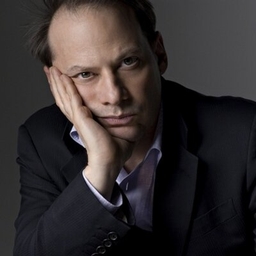
Articles
-
1 week ago |
link.newyorker.com | Justin Chang |Richard Brody |Amanda Petrusich |Adam Gopnik
What our writers think about the new film, which stars Dakota Johnson and Pedro Pascal. Plus: a new documentary about video stores. View in browser | “Materialists” Is a Thoughtful Romantic Drama That Doesn’t Quite Add Up In Celine Song’s follow-up to “Past Lives,” Dakota Johnson plays a New York City matchmaker caught between a designer Mr. Right and an impoverished ex-boyfriend.
-
1 month ago |
newyorker.com | Adam Gopnik
Why do we read the memoirs of aging entertainment tycoons, long after the entertainments that made the tycoon a tycoon have largely been shelved and forgotten? The easy answer is that they offer brushes with celebrities.
-
1 month ago |
newyorker.com | Adam Gopnik
Writers who contemplate going onstage tend to fall into two camps: those who know better and those who should but don’t. Of the second kind, The New Yorker has, over its hundred years, produced quite a few. Robert Benchley, one of the magazine’s founding voices (if on permanent loan from the Algonquin circle), was perhaps more famous in his day as a performer than as a writer. His sketch “The Treasurer’s Report” became a classic.
-
1 month ago |
newyorker.com | Adam Gopnik
To some degree, we always overinterpret elections. They can be decided by differences in proportion so small that, if the election had been held in a crowded barn and people had shouted out a voice vote, you would have had no idea who won, and yet even the tiniest margins become signals of historical inevitability. As with our most recent Presidential election, a small squeeze is amplified into an immense triumph.
-
1 month ago |
flipboard.com | Adam Gopnik
Conservative caucus will meet to select interim Opposition Leader amid concerns Liberals are trying to poach disgruntled MPsThe Conservative caucus will meet on Tuesday to mull over the party’s election defeat and select an interim Opposition Leader to replace Pierre Poilievre amid concerns that the Liberals are trying to poach some of their MPs. Front-runners for the job of Opposition Leader are former leader Andrew …
Try JournoFinder For Free
Search and contact over 1M+ journalist profiles, browse 100M+ articles, and unlock powerful PR tools.
Start Your 7-Day Free Trial →X (formerly Twitter)
- Followers
- 28K
- Tweets
- 905
- DMs Open
- No

RT @NewYorker: Pessimists may see Trump’s victory as a hinge moment in history. Positive-minded people may feel that the work needing to be…

RT @NewYorker: .@adamgopnik contemplates what’s at stake in the 2024 Presidential election and explores the cultural origins of the Trump m…

RT @davidfrum: The difference: The upsetting things said by Trump and Vance are not true. The upsetting things said about Trump and Van…
